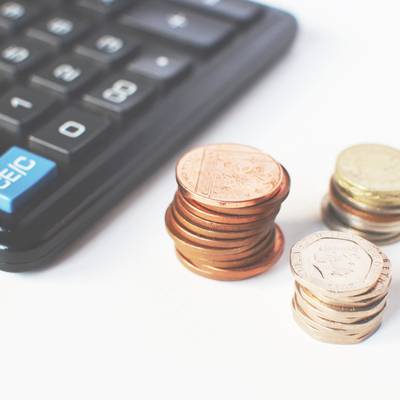כללי
תחבורה
אנשים
אירוח
אוכל ושתייה
ביקור באתרים
משפטי
כסף
 What is the currency in Spain?
What is the currency in Spain?
 Where can I exchange money?
Where can I exchange money?
 אני יכול להשתמש בכרטיס החיוב או בכרטיס אשראי?
אני יכול להשתמש בכרטיס החיוב או בכרטיס אשראי?
 כיצד ניתן להשתמש במכונות הכספומט בספרד?
כיצד ניתן להשתמש במכונות הכספומט בספרד?
 מה אני יכול להביא הביתה מספרד?
מה אני יכול להביא הביתה מספרד?
 האם ספרד יקרה?
האם ספרד יקרה?
 האם צפוי ממני לתת טיפ בספרד?
האם צפוי ממני לתת טיפ בספרד?
בטיחות ובריאות
נסיעות משפחתיות

How do I save money on my trip to Spain?
Spain is a very reasonably priced country to visit and travel in. You’ll find a wide selection of hotels to choose from and very cheap food and drinks. It’s also really well connected so there are lots of options for getting around Spain. Still, there are ways to cut the costs of your trip to Spain.
Book your flights at the right time. Though last-minute deals can be good value, you can get the cheapest flights by booking months in advance, especially if using a budget airline. Though budget airlines only cater for European countries, that doesn't mean Americans shouldn't think about them. Often the cheapest way to get to Spain is to find the cheapest flight to Europe and then to take a budget airline from there. But beware - budget airlines' extra costs can take you by surprise, especially Ryanair. If flying transatlantic, the best prices are normally found around three months before flying.
Share accommodations: youth hostels, Couchsurfing, and Airbnb. A problem shared is a problem halved and that goes for accommodation, too, which can be one of the biggest costs you have to face when trying to arrange a cheap vacation in Spain. Do you really need a private room? If not, try a youth hostel. They're no longer the characterless places they used to be. Free Wi-Fi and breakfast are standard in Spanish backpackers hostels and all ages stay in them these days. An even cheaper option is couchsurfing. There are websites that allow you to contact people with free couches. These people let you sleep on their couch for free and are always more than happy to show you around. But please be cautious and always read reviews of people you plan staying with! Admittedly, these services are not for everyone. If you need the privacy of your own room, why not try Airbnb? The much-publicized Airbnb allows people with spare rooms or apartments to rent them out to visitors. It is far cheaper than a hotel or self-catering apartment and the site is very safe and secure.
Avoid the train (usually). Lots of people go straight to the train station when traveling in Spain, fearing that taking a bus will be more difficult. It will be, but that doesn't make it impossible. It is usually much cheaper to travel by bus and you'll often save time too. But there are even cheaper ways to travel in Spain. One reliable way to share fuel costs (and carbon emissions) is to try car sharing.
Go underground. Spain's bigger cities have cheap metro systems (subways or underground systems to most Anglophones). In Madrid and Barcelona, they're indispensable. Don't be afraid of delving into Spain's transport underworld. Spanish metro systems have a simple pricing system and easy-to-read maps.
Eat as the Spanish do. The Spanish have a small breakfast and a large lunch and you should, too. That's because lunch in Spain is far cheaper than eating in the evening. It is a legal requirement in Spain to offer a 'menu del dia.' If you aren't used to a big meal at lunchtimes, eating a small breakfast should set you up perfectly for lunch. Spanish cafes are full from 7 a.m. or 8 a.m. until 10 a.m. as the locals have a pastry or a piece of toast with a coffee. It is cheap (under 2 EUR) and will give you just enough energy to last till lunch. Eat anything bigger than this and you'll pay more and will find you have no appetite at lunchtime (and will end up paying too much for dinner in the evening).
Consider a discount card if you plan to be seein a lot. Discount cards get you cheap or free entry to just about every museum in town. They can save you a fortune if you're a particularly ambitious tourist and get a lot done in a day. But often the card will cost you more than you manage to save. Work out how many attractions you're likely to get through in a day and see if the card is worth it for you.
Visit museums on free days. What's better than cheap? Free! Lots of museums in Spain are free on certain days or at certain times in the day. You'll find them to be a lot busier at this time, but don't let that put you off; you can always go again! There are also plenty of completely free museums in Madrid.
When in Granada, eat tapas. Everyone's amazed to discover that in Granada, you can eat for free! That's right, with every small (usually alcoholic) drink you buy in a bar in Granada, you'll get something to eat. And we're not talking just a few olives here (though that is occasionally all you get). We're talking generous portions of paella or even a burger and fries! You can easily get your fill after just three or four small beers. Granada isn't the only place in Spain where you can get tapas for free, but it is probably the best. However, if you're in the Basque Country on a tight budget, don't eat tapas. While tapas in many parts of Spain can be a great way to eat cheaply, this isn't the case in the Basque Country. Here they call them pintxos, which allows them to charge much more for them. They're very nice, but not a good way to eat cheaply. Go for a Menu del Dia instead.
Don't over tip. Spaniards hardly ever tip, particularly for food or drink service. It might seem strange if you come from a country with a tipping culture but to save money don’t over tip. If you have a fantastic meal with a great waiter of course give them a tip to say thank you. However, in general service is not really done with a smile in Spain and servers don’t pander to guests. In turn they don’t expect a tip.
Drink the tap water. Check that the water in your area is safe as some island, coastal or rural towns may not have sufficient filtration systems. But generally the water in Spain is drinkable even if it tastes a little different to water at home. For example the water in Barcelona is heavily filtered and the process makes the water taste a little funny but its safe to drink. Most Spanish cities and towns have public water fountains so save money (and the environment) by refilling your water bottle instead of buying water everyday.

מה אני יכול להביא הביתה מספרד?

היכן כדאי להצטייד בספרד למשך שבועיים?

אם אני יכול לשתות מים מהברז בספרד?

כיצד ניתן להשתמש במכונות הכספומט בספרד?

אילו בעיות משפטיות עשויות להתעורר בספרד כתושב זר?
